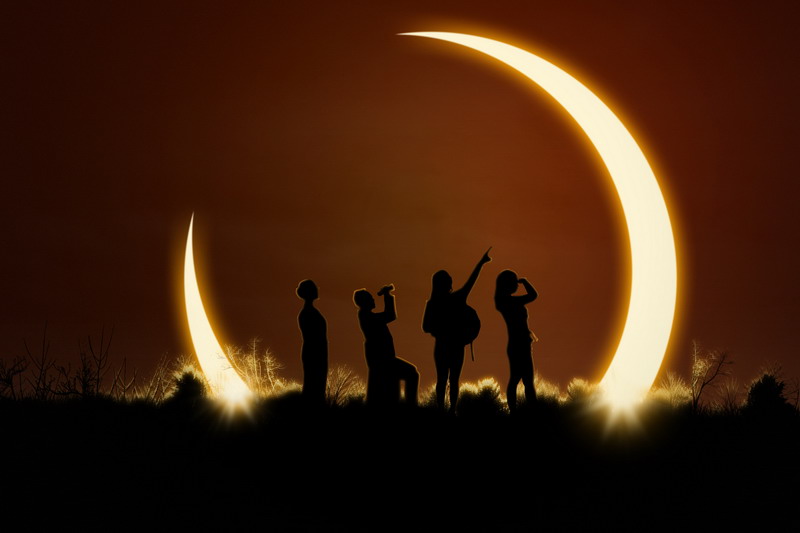U.S. residents will experience something on August 21 that will not come around again for another seven years. Of course, we are talking about the solar eclipse that so many astronomy enthusiasts have been looking forward to for years. Because of the relative rarity of solar eclipses, they are a big deal to people wishing to see one with their own eyes. As a retailer of sunglasses, you need to be prepared by understanding what solar eclipses mean for sunglasses.
You may purchase bulk designer sunglasses from us on a regular schedule. That does not mean you are prepared as a supplier of sunglasses for the solar eclipse. In fact, you are not prepared if you do not have a specific kind of solar shield sunglasses in stock. Why do we mention this? Because some of your customers may come in looking for the darkest pair of sunglasses they can find under the assumption that these will provide adequate eye protection for viewing the eclipse. They will not.
We sell all kinds of black sunglasses in bulk. They are great for everyday use on the sunniest of days. But standard sunglasses are not the same as solar shield sunglasses and they do not provide adequate protection while viewing an eclipse.
Viewing an Eclipse Can Be Dangerous
A solar eclipse occurs when the moon passes in front of the sun on a direct path that blocks the sun either entirely or partially. The August 21 eclipse will be a full eclipse. Such eclipses present very real dangers to viewers. There are three kinds of light to be concerned about:
- Ultraviolet (UV) Light – This kind of light is routinely blocked by standard sunglasses. If UV light were all that eclipse viewers had to worry about, standard sunglasses would be sufficient.
- Infrared (IR) Light – Infrared light is the same kind of light emitted by your TV remote control. In small amounts, it is not dangerous. However, in the concentrations that accompany full solar eclipses, IR light can do plenty of damage to the eyes. Standard sunglasses do not protect against IR light.
- Direct Sunlight – The direct sunlight visible by the naked eye is especially intense during the partial phases of an eclipse. During those last few seconds before and after the total eclipse, the intensity of the sunlight can burn retinas and corneas. It can even cause blindness.
It is never safe to view a total eclipse without proper eye protection or an approved pinhole viewer regardless of one's location. Make sure your customers understand that not being in the direct path of a full eclipse is irrelevant. In fact, those outside of the direct path are even more vulnerable because they will never actually see the full eclipse. There will be more time for them to be exposed to the intense direct sunlight that is so dangerous.
Make Sure Your Customers Know
We are thrilled that you buy bulk designer sunglasses from Olympic Eyewear. We are thrilled that the black sunglasses you buy in bulk are favorites among your customers. But do not allow your customers to falsely assume that standard sunglasses will provide adequate protection for viewing the solar eclipse. They won't.
Remind your customers that they need specially designed solar shield sunglasses that are both CE and ISO approved. Furthermore, the sunglasses they do choose for viewing need to have a filter strong enough to block 99.99% of the intense visible light produced by eclipse. Ideally, they will want a pair of sunglasses made of a black polymer with a density rating of 5.

